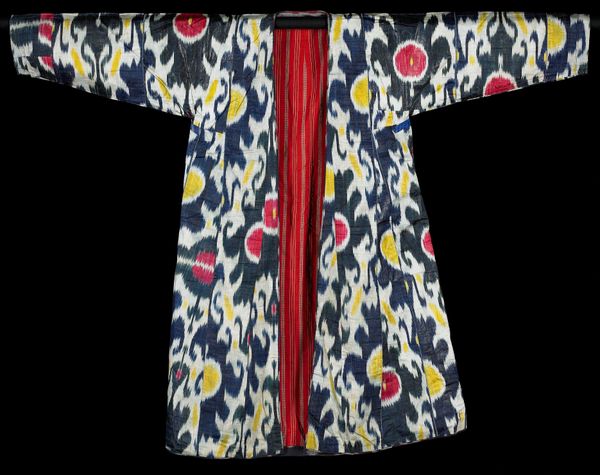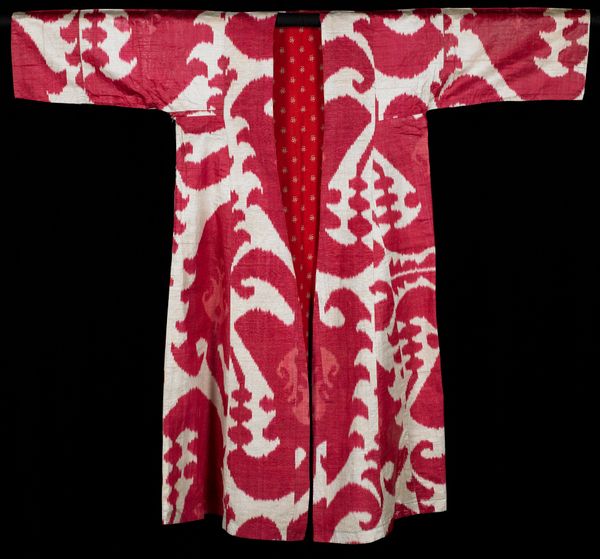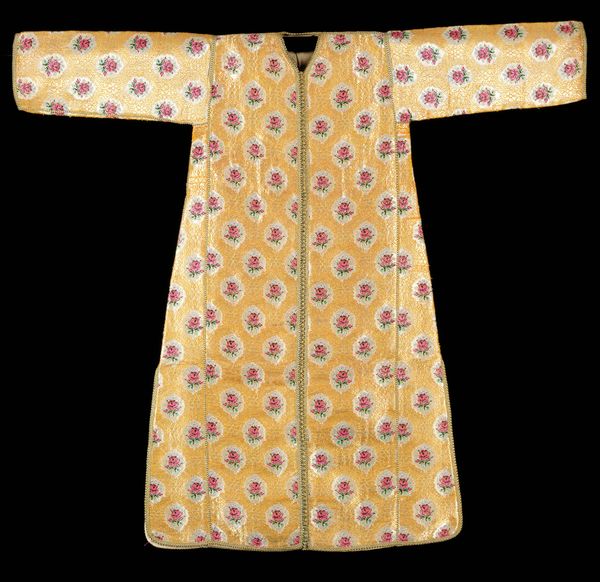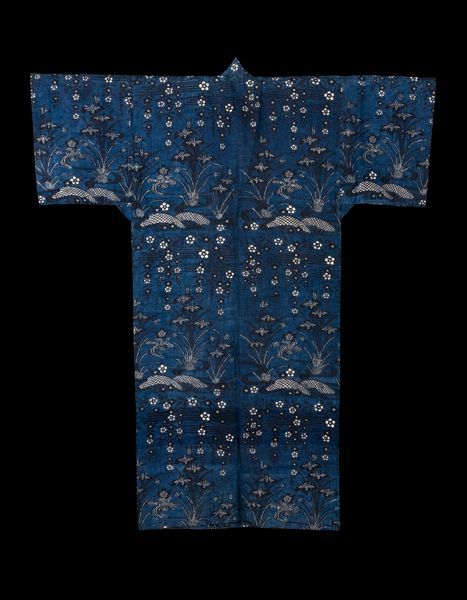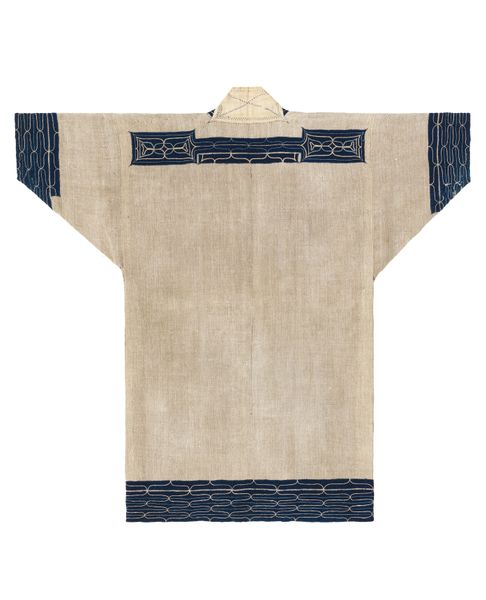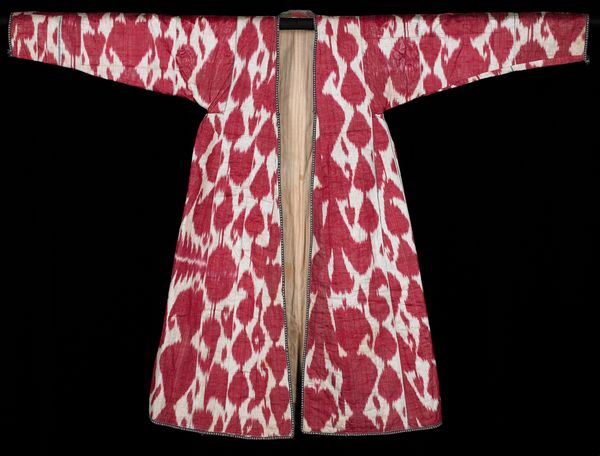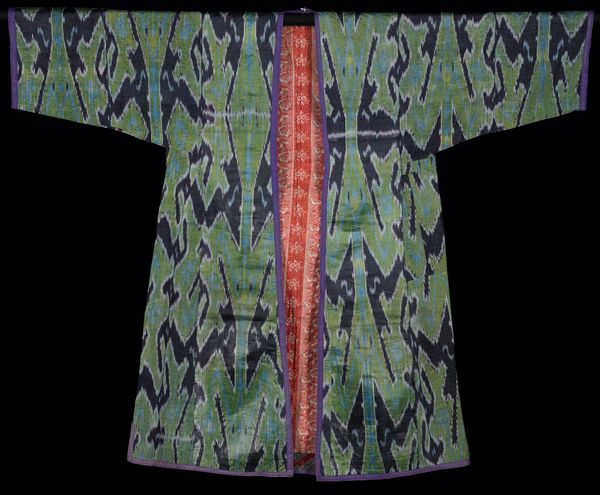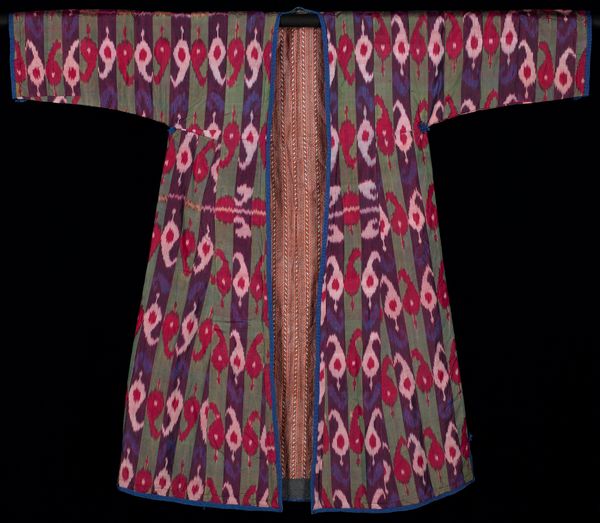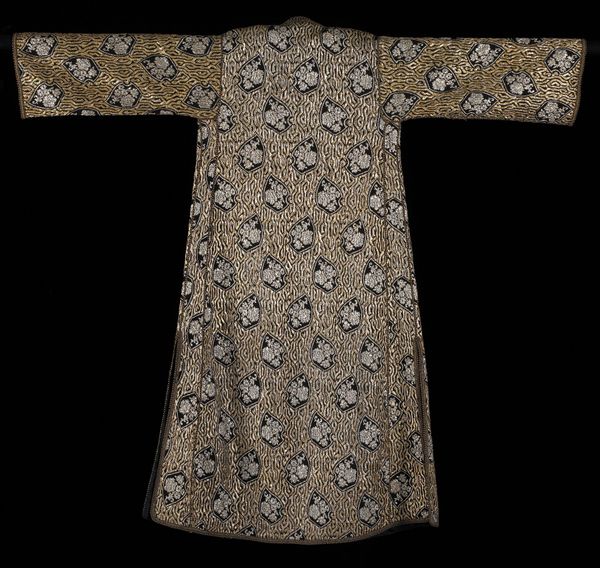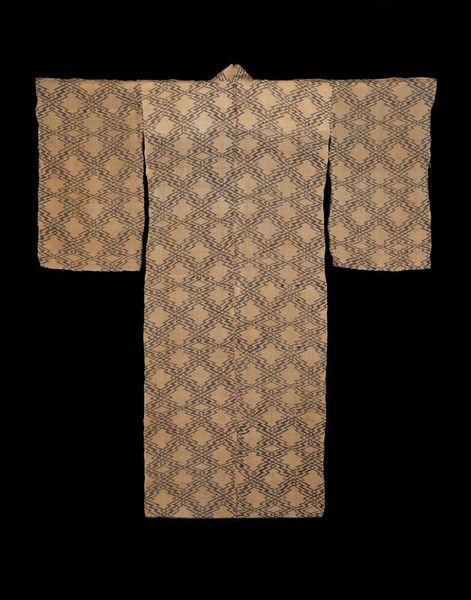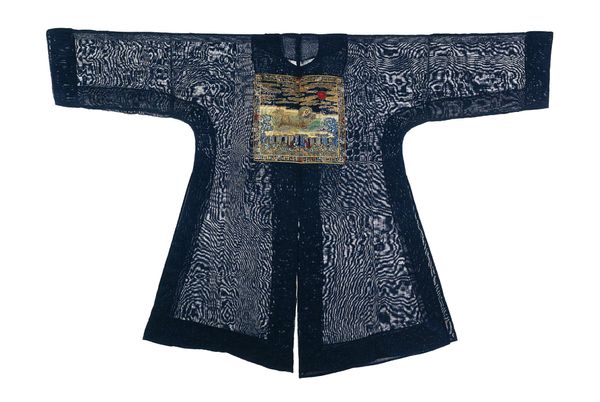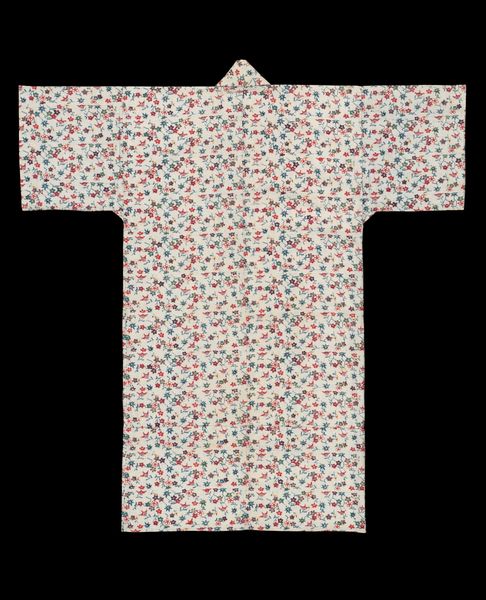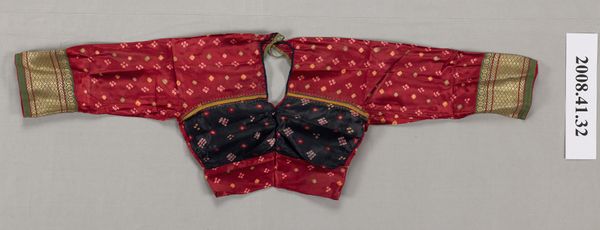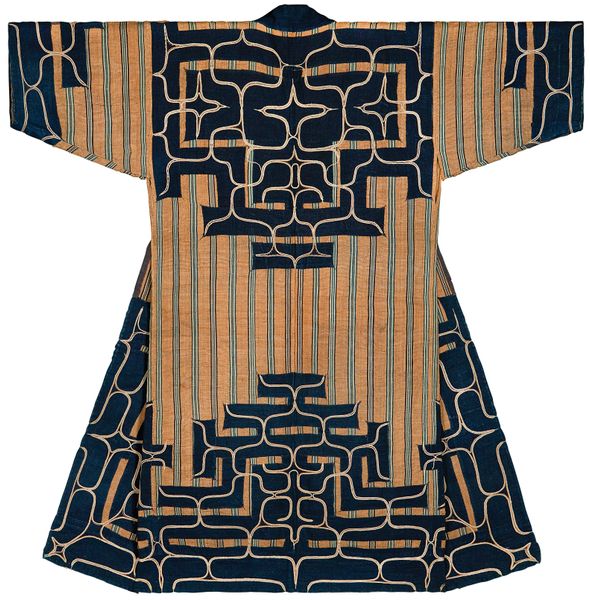
Farmer’s short coat (hanten) made on Shikoku Island c. early 20th century
0:00
0:00
weaving, textile
#
fashion mockup
#
pattern
#
asian-art
#
weaving
#
textile
#
clothing promotion photography
#
fashion and textile design
#
japan
#
hand-embroidered
#
repetition of pattern
#
clothing photo
#
pattern repetition
#
textile design
#
imprinted textile
#
layered pattern
Dimensions: 35 × 47 1/4 in. (88.9 × 120.02 cm)
Copyright: No Known Copyright
Editor: Here we have a Farmer’s short coat, a hanten made on Shikoku Island around the early 20th century. The indigo dye and repeating pattern of white geometric shapes are striking! What can you tell us about the artistic aspects of this textile? Curator: Notice the precise articulation of the repeated motifs, nearly symmetrical. The artist's choice to repeat the same shape, reminiscent of a flower or perhaps a stylized snowflake, dictates a certain visual rhythm. How does that rhythm affect your viewing of the work? Editor: It feels quite structured, almost meditative, but is that enough? I can't really comment on artistic intent given that the origin is in folk art, although I know hanten were commonly indigo dyed cotton. I assume the restriction of material would dictate formal elements and simplicity. Curator: Quite right! It seems reasonable to believe material restriction leads to simple forms and elements. But it’s interesting that while visually minimal, the even distribution of the repeated pattern across the hanten speaks to a refined understanding of design principles. It doesn't feel accidental. What do you make of the interplay between the dark indigo field and the light motif? Editor: It creates a really nice contrast! It guides the eye, moving across the surface of the garment in a structured way. The even distribution really emphasizes the craftsmanship. Curator: Precisely. We can consider how such interplay engages ideas concerning perception. Focusing on form alone allows one access into its structure and how the object operates. Editor: This new appreciation, thinking about it from a design point of view, offers a valuable insight into how this traditional garment transcends mere utility, entering the realm of artistic expression through careful aesthetic choices. Thanks for pointing out these aspects!
Comments
No comments
Be the first to comment and join the conversation on the ultimate creative platform.
